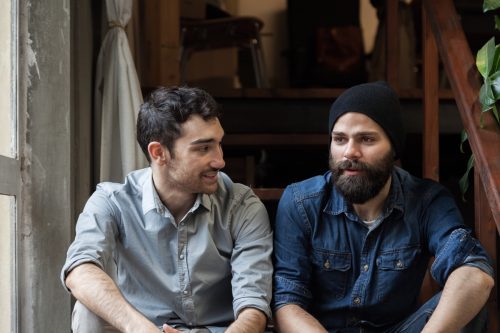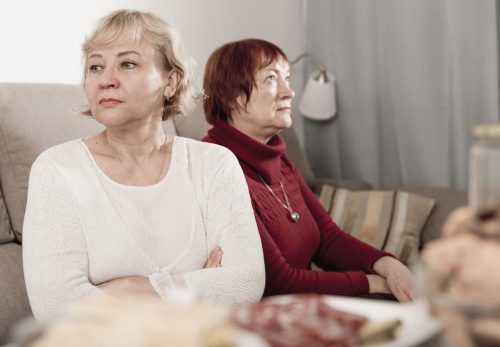What Is Friendship Burnout, and How Can You Overcome It?

Strong friendships make life more fulfilling: Studies show they boost happiness and give us an increased sense of purpose, reduce stress, and even decrease our risk of issues like depression, high blood pressure, and an unhealthy body mass index. But sometimes, a friendship goes from adding value to your life to feeling draining. Experts call the phenomenon “friendship burnout.”
“It happens when the effort and energy you put into the relationship outweigh the joy and support you get back,” explains licensed clinical social worker Jessica Hunt.
According to Suzette Bray, LMFT, licensed psychotherapist and author, friendship burnout is similar to burnout in other areas of life, like work and caregiving, where the fallout it causes can be “emotional, mental, and sometimes physical.”
Keep reading to learn the signs of friendship burnout and what therapists say you can do to remedy it. Getting to the root of the issue—and turning your friendship around—could be as simple as having an honest conversation.
RELATED: 10 Signs You’re Headed for a Friend Breakup.
What are the signs of friendship burnout?

Common symptoms of friendship burnout can include a lower level of joy and fulfillment in the relationship or an increased sense of resentment.
You might see these issues play out in your interactions. For example, “a text or call brings up a feeling of ‘ugh, no!’ rather than ‘yay!’” says Bray. Or, she says, you may feel “increased annoyance with things that wouldn’t typically bug you.”
After hanging out with a friend who’s burned you out, you may feel drained or overwhelmed. “It could also cause stress-related physical symptoms like headaches and fatigue,” Bray notes.
RELATED: How to Apologize to a Friend, According to Relationship Experts.
What causes friendship burnout?

One of the biggest causes is an unequal emotional investment, whether that’s real or perceived.
“The friendship feels one-sided, with you constantly giving more support than you receive,” says licensed psychologist Shmaya Krinsky, PsyD. “Or you feel like your efforts to nurture the friendship aren’t reciprocated.”
It could even be as simple as growing in two different directions.
“For example, if you have a great friendship with someone when you both don’t have kids, the needs of both parties can change when one of the friends has a baby,” explains licensed professional counselor Janice Holland. “Some friendships weather this just fine, while some don’t.”
In such a situation, Holland explains that the friend with the baby may find more connection with friends who are also new parents, while “the friend without a baby has needs for connection and conversation that their friend just can’t relate to or offer anymore.”
Finally, toxic behaviors will almost always lead to burnout. “For example, if your friend exhibits manipulative, harmful, or disrespectful behavior,” says Krinsky.
This one’s a two-way street: “A friendship that lacks open communication or is full of negativity” will lead to burnout, Krinsky adds.
RELATED: How to Make Friends as an Adult: 16 Steps to Follow.
How to move forward from friendship burnout

According to Krinsky, there are several steps you can take toward remedying friendship burnout.
First, you’ll need to set some boundaries. “Learn to say no to requests that drain you and prioritize activities that bring you joy,” he says.
You’ll also need to communicate those boundaries effectively: “Have an honest conversation with your friend about your feelings, needs, and concerns,” Krinsky advises.
If those conversations go well, you can continue the friendship—but with a few tweaks. “Try new activities together to rekindle interest and enjoyment,” suggests Krinsky. If you typically hang out at the bar, try going on walks or taking a class together. Or, if you always go on walks, try a teamwork activity like trivia night or tennis.
You might also find that one or both of you need fulfillment outside the friendship. You could schedule outings with other friends or a mental health professional. “Talk to a therapist or counselor for guidance on managing difficult friendships,” says Krinsky.
If your boundary setting doesn’t go well, you may need to press pause on the friendship. “Agree to take a temporary break from the friendship to recharge and reflect,” he recommends.
RELATED: 10 Red Flags Your Friend Is a Narcissist, Therapists Say.
How to know a friendship is over

Unfortunately, it’s not possible to save every friendship, but the key is not to see that as a failure.
“If you’ve addressed imbalances and voiced needs, but the friendship still depletes you, it may be time to disengage or end the friendship,” says Justin Jacques, PhD, founder of Human Theory Group. “If your values or interests have significantly diverged, it can signal outgrowing the friendship, and ending the relationship or distancing yourself might be best.”
You can see each other less frequently or trickle down to no contact.
“It is OK to have small-dose friends,” says Jacques. “A close friend who was in your inner circle may shift to a more peripheral friendship.” All of it’s part of the natural cycle of friendship.